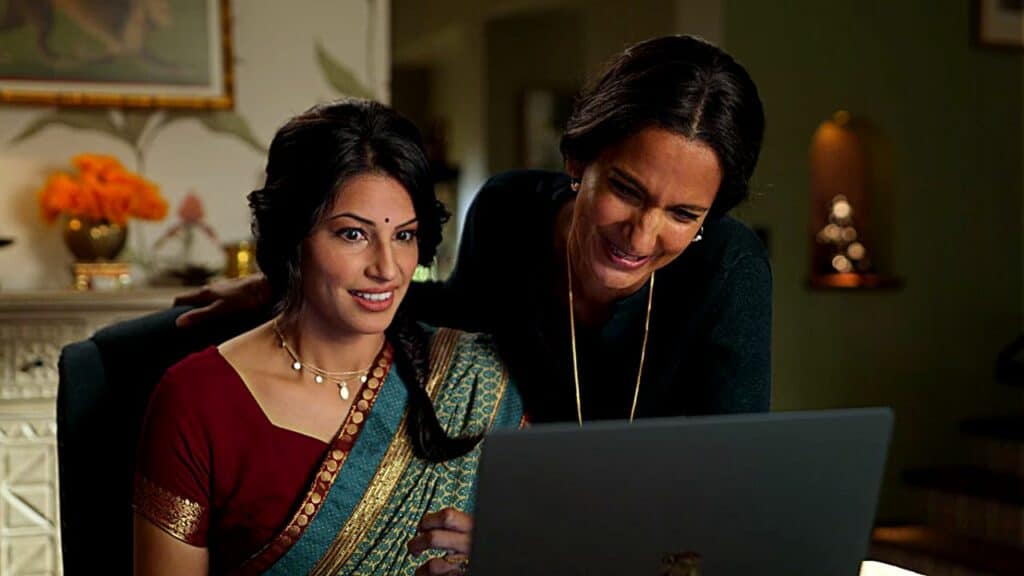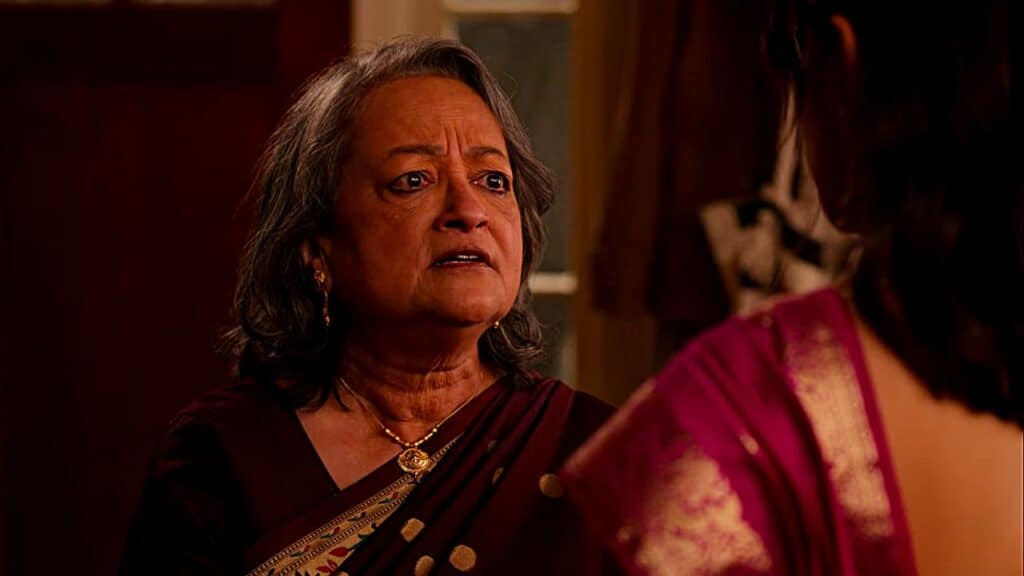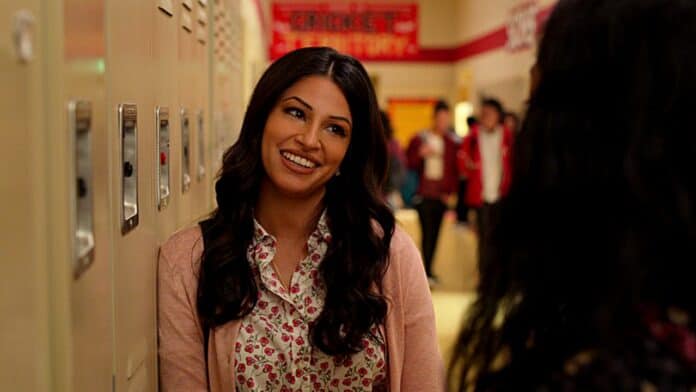While Devi is the main protagonist of the series, it is Kamala’s role that has more significance when it comes to the cultural impact of her character.
Kamala is Devi’s cousin who moved in with them a little while after Mohan’s death. The character is played by Richa Moorjani and comes across as simple and naive and easily impressed by the complexities of western culture.
She’s doing her PhD at Caltech and is incredibly smart but is mostly known for her stunning looks over everything else. She actually experiences “pretty privilege” on many occasions within the series as well.
Kamala is mostly used as a narrative device to depict several traditional Indian as well as feminine stereotypes. At the same time, she is gradually shown breaking those same stereotypes in moments of defiance and growth.
The concept of arranged marriage
Despite being such a highly educated person, Kamala is expected to marry a man chosen by her parents and settle down. This process is filled with steps that make Kamala uncomfortable but she goes through them nonetheless.

Meeting with the man’s parents before even meeting the man, it’s almost like a job interview where Kamala needs to show that she can be a traditional housewife who knows her way around the kitchen and can take care of the household.
Kamala is never depicted as an outright rebel, she just struggles to accept the card that she is dealt with. She even breaks up with her secret boyfriend to honour her parents’ wishes and have her marriage fixed.
After being exposed to some American teen dramas, she goes back on her decision and gets back with her boyfriend but continues to go through the steps towards an engagement just to make everyone happy.
Kamala is brought face to face with another woman who was shunned by her community for marrying for love outside her community, and even the woman tells her it’s a bad idea to do things out of love. Everyone around her advises her to stay within the lines, and while she tries her best, she just doesn’t feel it is the way to go.
Kamala’s suitor is a smart, modern man named Prashant, and the more she gets to know him, the more she warms up to the idea of an arranged marriage. Her first in-person meeting even requires a male chaperone from her side of the family.
Enter uncle Aravind, the personification of a traditional Indian man who prefers it when women “know their place” and isn’t all that subtle about it. Another idea that is constantly portrayed is that Kamala’s personal decisions are closely tied to her family’s reputation, in a way forcing her to bend to their will out of fear.
Prashant and Kamala get along with each other and they do decide to take things slow while Kamala breaks up with her boyfriend for good. She’s found a healthy compromise for the situation, at least for the time being.
Issues at the workplace
Kamala gets the opportunity to work under a very accomplished member of Cal-tech but instead, she has to deal with his assistant Evan. Evan doesn’t take her seriously at work and makes her do all the grunt work.

When she brings up these issues with Prashant, he tells her to just keep her head down and work through it until they get tired and stop. This pattern is seen recurringly throughout the season where Kamala is not being respected by her bosses and when she tells her Prashant, he brushes it off as not that big of a deal.
When Evan omits her name from a key research paper even though it was her work that was the basis for the paper, she approaches their boss, but he tells her that it’s not a good look to complain and appear “difficult”, an opinion that Prashant shares too.
It finally takes another female opinion, Devi’s, for Kamala to realize that she needs to stand up for herself because she’s being wronged. She speaks her mind and feels empowered doing it in another moment of character growth.
By the end of the second season, Kamala has already progressed far from the person she originally was and there’s one more issue that she has to overcome by the end of it.
Needing her own space and freedom
After Kamala’s grandmother, Nirmala, decides to move in with them, Kamala is provided with yet another perspective on the traditional Indian values that she is meant to uphold.
Her relationship with Prashant takes a hit after his opinions on her work issues and when it is revealed that he plans to propose, she is spooked because she still doesn’t feel ready. She’s always been told that this is the path chosen for her and that arranged marriage isn’t as bad as it is made out to be.
When the time does come for Prashant to propose, Kamala bails on the dinner to meet Devi’s teacher, Manish. Her brief encounters with him made her feel relaxed and comfortable so that was the first place she could think of right then.
Nirmala that she fixes things with Prashant but all that does is make Kamala realise that she just isn’t ready for marriage. Her grandmother doesn’t accept her decision and keeps pushing the issue by hosting a mixer for her.
Nirmala is more focused on saving face after the ridicule they faced following Kamala’s snubbing of Prashant and even when Kamala tries to introduce Manish, Nirmala is not accepting of him as a suitable partner because he is so far removed from his Indian roots.

All of this pushes Kamala to her limit and she decides to move out of the house so that she can exercise her decisions without the added scrutiny of her grandmother.
Kamala’s entire arc from the naive Indian girl to someone who knows what she wants and isn’t afraid to stand up for herself while still trying to be respectable is an intriguing study into the life of an Indian immigrant in the USA.
Her subverting of traditional stereotypes, when compared to past Indian depictions in western media, makes her an influential and progressive representative for Indian immigrants in the media.
Also Read: Who is Des? Never Have I Ever season 3 character explained

